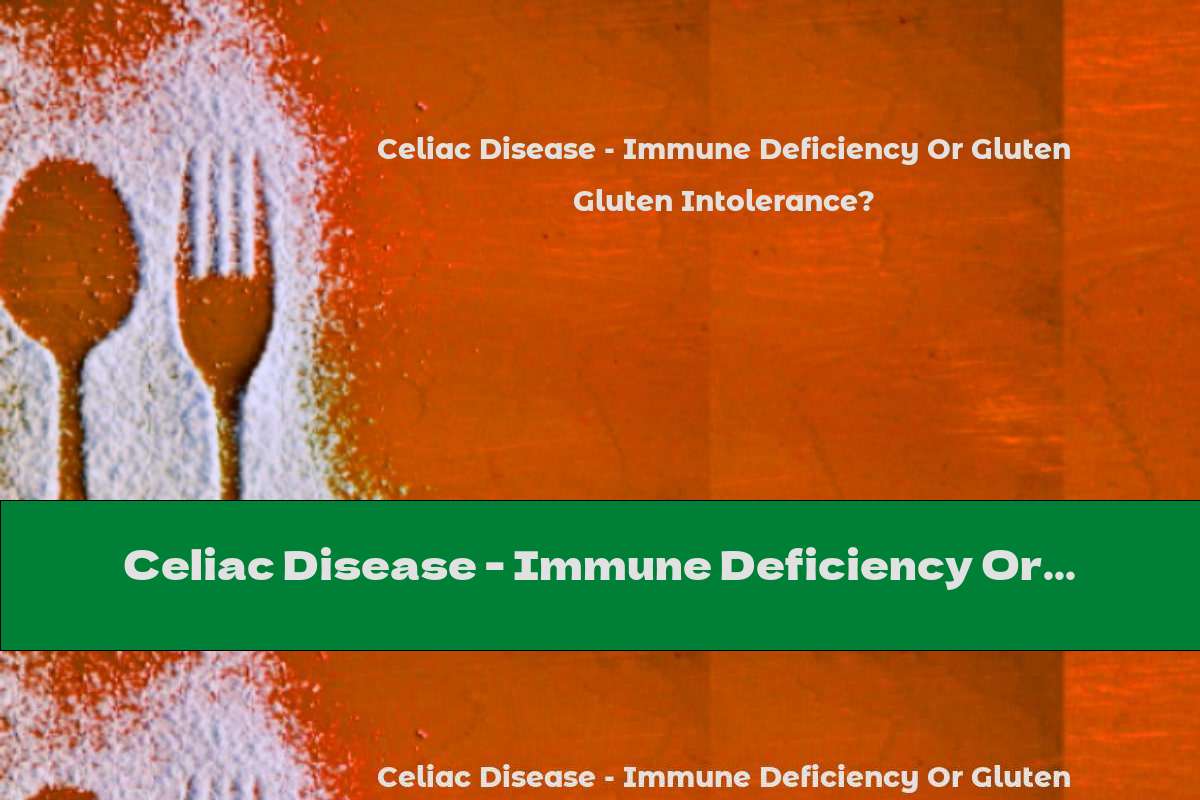Celiac Disease - Immune Deficiency Or Gluten Intolerance?
 Author: Nia Rouseberg
Time for reading: ~2
minutes
Last Updated:
February 12, 2026
Author: Nia Rouseberg
Time for reading: ~2
minutes
Last Updated:
February 12, 2026

CHAPTERS (Table Of Contents)
In this article, learn more about Celiac Disease - Immune Deficiency Or Gluten Intolerance?. What are the risks of the disease and who suffers from it?.
Celiac disease is still called non-tropical sprue. In essence, the disease is a very pronounced hypersensitivity to gluten. This is a protein found in most grains, except corn and rice. Intolerance of the body irritates the lining of the digestive system, mostly affecting the small intestine.
The disease can lead to complications for both the whole body and the stomach. The disease is often associated with the development of impotence in both sexes. Ladies cannot become pregnant between 9 and 18 months after the full course of successful treatment of the disease. The same data are shared for men, and 2 years after the course of treatment they may still show signs of loss of potency. Sometimes the lack of fertilization can last more than two years in both sexes.
Studies show that genetic predisposition to the disease has mainly women from northern European regions. However, the frequency of morbidity is also increasing in our territory. The number of sick women is much higher than that of men. The disease usually develops in early childhood or infancy, but recently there have been cases of patients who develop gluten intolerance in later life, and even in old age.
Patients with celiac disease do not take any pasta and pasta and everything that is prepared from cereals and white flour . Those who do not follow an important diet are at risk of developing small bowel cancer several times more than healthy individuals.
1. What conclusions do scientists reach?
According to specialists in gastroenterology and immunology, celiac disease is an immune disease in which the body develops intolerance to gluten in the gut . According to them, siblings of sick people, as well as first-line heirs, have a significantly higher risk of developing the disease. There is a third theory, which is defined as an immune defect in which the body begins to attack its own cells on the intestinal wall and considers them foreign.
2. What are the symptoms?
The symptoms of celiac disease are particularly characteristic. The disease is accompanied by severe abdominal pain and bloating. Many gases are formed and a false sense of a foreign body is created in the abdomen. A characteristic finding of the clinical picture is the development of diarrhea , which is especially strong immediately after gluten intake .
There are also pale and foul-smelling stools that float in the water on the toilet bowl and sometimes have yellow greasy droplets that are traces of bile. Another characteristic symptom of celiac disease is a worsening of the general condition. Patients are tired, without appetite and lose weight easily. Itchy blisters appear on the skin in the elbows and knees. And in children, growth retardation and muscle weakness can be seen .
In the therapeutic scheme, the most important thing is that the diet is 100% gluten-free. In some conditions of exacerbated crises and reactions, doctors prescribe corticosteroids or start its administration intravenously in doses of 1 mg per 1 kg of body weight. The most commonly used agent of choice is methylprednisolone. Nutritionists recommend eating gluten-free products , such as soy sauce and modified starch, which are also available as dietary supplements for many foods.
Related Articles
- The Ultimate Guide to High Gluten Foods: Benefits, Sources, and Recipes
- The Ultimate Guide to High Gluten Foods: Effects, Benefits, and Recipes
- Vitamin B12 in Nutrition: Sources, Benefits, and Deficiency Signs
- The Power of Thiamine: Importance, Sources, Deficiency, and Diets
- The Ultimate Guide to Iron in Nutrition: Sources, Deficiency, and Recipes
Top Nutrition Articles Today
- . The Latest Food Pyramid: A Guide to Balanced Nutrition
- . The Importance of Nutrition Conferences: Promoting Awareness...
- . Understanding Emulsifier 472 (E472a) in Nutrition: Functions...
- . The Role of Hydrochloric Acid in Digestion: A Comprehensive...
- . Chicory: 15 Health Benefits, How To Drink, Contraindications...
- . The Role of K12 in Nutrition: Benefits, Sources, and Recomme...
- . The Complete Guide to E471 in Nutrition and Food Products
- . Carbs to Sugar Conversion Chart: Monitoring Carb and Sugar I...
- . The Role of Hydrochloric Acid in Digestion: Importance, Symp...
- . The Benefits of Myra E: A Powerful Vitamin E Supplement